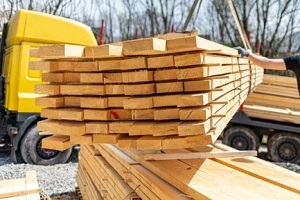
The timber industry is a critical field that keeps American businesses and households stocked with the products that they need. However, this work is dangerous — much more so than average physical labor, and significantly more so than office work. In order to mitigate this risk and protect your company and employees, those who operate within the timber industry are wise to invest in comprehensive timber insurance coverage.
Choosing the right coverage can be a challenge, both in terms of knowing what’s necessary and then qualifying for it at an affordable rate. Here are some things to keep in mind.
Timber Industry Risks: The Facts
Forestry businesses face high risk every day, from catastrophic losses to significant worker injury or even death. Data indicate that workers in the logging and timber industries face a rate of injury (that results in missed work) at a 40 percent higher rate than their private industry counterparts.
Additionally, natural disasters and accidents can also cost timber companies significant amounts of money; in 2020 alone, wildfires in Oregon cost timber operations almost $6 billion in losses. That’s just one state in one year, proving that businesses operating in this sector need to prepare to cover significant and unexpected losses.
Insurance Policies for Timber Businesses
Regardless of exactly what your business’s role is in handling timber (whether it’s the cutting, processing, transporting, or some combination of these and more), there are certain insurance policies that are invaluable to your company’s work. Across the industry, the most common insurance coverages include:
- Workers’ compensation – Companies are usually required to carry workers’ comp insurance coverage, but be sure that your timber business is prepared for a higher than average incident rate. Workers’ compensation insurance for timber companies carry a higher limit and greater protections than what something like an office job would need. Expect workers to be out for injury more often and for their medical bills to be costly;consider crafting your coverage accordingly.
- Equipment insurance – If a critical piece of machinery breaks at an inopportune time, your entire project could be jeopardized. Whether you miss a deadline or have to delay other important tasks, that’s money out of your pocket if you don’t get your equipment up and running again quickly. Equipment insurance can help to pay for repairs or replacement, and most policies let you specify which items to cover. Feller bunchers, processors, sliders, and slashers are common coverage points.
- Pollution insurance – Timber companies rely on large machinery to get their work done, and it’s only a matter of time before something like spilled oil, a gasoline leak, or some other problem pollutes the work area. This type of policy coverage can help to pay for the required cleanup afterward.
- Cargo insurance – The point of being a timber company is to work with timber — which means that if something happens to that precious cargo, you could lose some or all of your compensation for a project. Cargo insurance protects your timber (and other relevant cargo) from theft, damage, or loss.
Improving Approval Rates for Competitive Insurance Coverage
Because the industry faces so much risk, insurance coverage can often be more expensive than a company anticipates. While you can’t make the timber sector less risky, there are steps you can take to bring down the cost of your own timber business insurance policies. Consider these options to do so:

- Invest in training to keep employees safe
- Conduct regular maintenance on your equipment
- Hire drivers and other workers with experience
- Establish a reputable history of incident-free timber processing
- Bundle multiple insurance policies with the same provider
Some elements of your premium, such as your history of claims, can’t be changed after the fact. However, you can adjust how your company approaches future business to reduce claims going forward and make yourself more appealing to insure. This will result in a lower overall risk to insurers, which can be reflected in the premiums you’ll be asked to pay.
Trust the Pros to Help You Secure Timber Insurance Policies
You may feel at a loss for how to get started with timber insurance, or you might be wondering if your current coverage is truly enough for when something goes wrong. The best way to equip your company for success is to work with an insurance agency that has experience insuring businesses in the forestry sector.
The professionals at Burton & Company can help you to create the perfect blend of insurance policies to address the risks that are more pressing for your business. Reach out to learn more or to schedule an appointment to discuss your options.
Burton & Company’s team of experienced insurance advisors will analyze your risks and offer you a tailored insurance plan that aligns with your requirements and budget. Contact us today to discover how we can secure your valuable assets and provide you with peace of mind, so you can focus on what truly matters.

